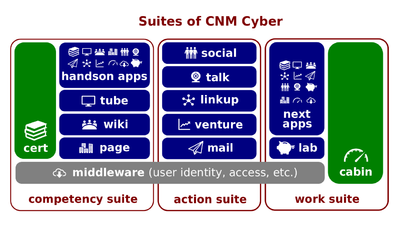What Reporting Is
What Reporting Is (hereinafter, the Lectio) is the lesson part of Technical Report Essentials lesson that introduces its participants to technical report concepts. This lesson belongs to the CNMCT Entrance section of the CNM Cyber Placement.
Content
The predecessor lectio is What Test Case Is.
Script
- A report is a description of events, or a lack of those, or a statement that reflects a state of affairs that recipients of the report either requested or are willing to receive. Reporting refers to endeavors to produce one or more reports; however, not everyone who produce reports is a reporter.
- Reporters discover data related to news events and describe them for some media. However, those individuals who are not called reporters produce fewer reports than those who are formally not reporters.
- For instance, accountants and financial managers produce financial reports that reflect financial data and financial standing of some entity. Engineers, managers, and operators describe standing of equipment, logistics, orders, production, supplies, and other operational data. Sales representatives report about their interactions with the customers. Scientists report their research findings, and so on.
- However, electronic devices produce the overwhelming majority of reports in our digital age. For instance, traffic reports may aggregate millions of reports produced by GPS-powered equipment, cameras, and other sensors. Another example could be the fact that the computing servers of CNM Cloud routinely report to WorldOpp Middleware and the middleware returns its data to the servers upon their requests.
- Various question sets have been created to make sure that the report data is consistent. Rudyard Kipling established one set in a short poem,
I keep six honest serving men
(They taught me all I knew);
Their names are What and Why and When
And How and Where and Who.
- Collectively, the question words who, what, when, where, why, and how are sometimes called Kipling Questions or 5W1H. Five of these question words start with W and one with H. The other sets may include with what, additional Ws and Hs for metadata like who reported, and a few other.
Key terms
Closing
The successor lectio is Narrated Fact vs Opinion.
